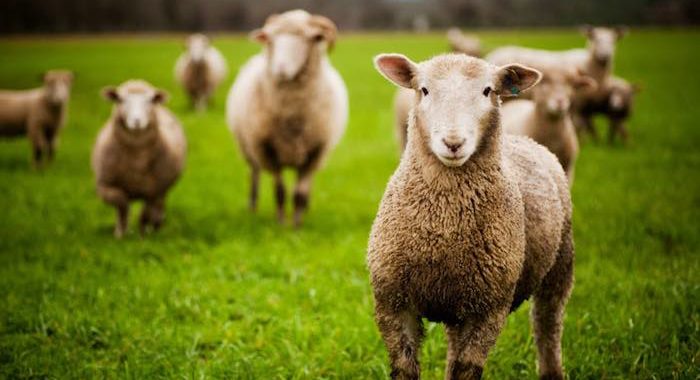One of the most famous psalms in the Bible is Psalm 23. This psalm was written by King David, who began this particular psalm with these words:
The LORD is my shepherd,
I shall not want.
He makes me lie down in green pastures;
He leads me beside quiet waters.
He restores my soul;
He guides me in the paths of righteousness
For His name’s sake. – Psalm 23:1-3
In this psalm, King David painted a unique picture of the relationship between the LORD and himself. King David portrayed himself as a sheep and the LORD as a shepherd.
As a shepherd in his youth, King David understood the responsibilities of a shepherd and witnessed firsthand the benefits that his own sheep received from being under his care. In this week’s Torah Portion we read about the life of Jacob and we see the dramatic impact that both sheep and shepherding had on his life.
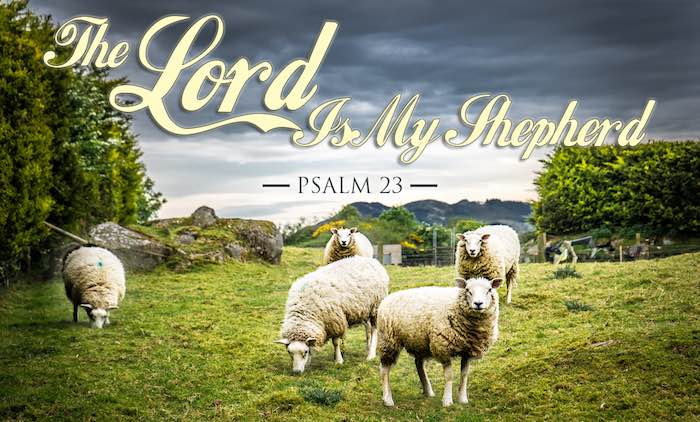
Shepherds & Sheep
We begin this week’s Torah Portion with Jacob leaving his mother and father in Beer Sheva and setting out for Haran, the land of his mother’s birth, in order to find a wife for himself. When Jacob arrived to the region of Haran, he was greeted by sheep:
Then Jacob went on his journey, and came to the land of the sons of the east. He looked, and saw a well in the field, and behold, three flocks of sheep were lying there beside it, for from that well they watered the flocks. – Gen. 29:1-2
A well and three flocks of sheep were the first things that Jacob saw as he approached his new homeland.
It was at this location of the well with the three flocks of sheep that Jacob met the local shepherds and would eventually connect with his own extended family. The story began in this way when Jacob approached the shepherds:
Jacob said to them, “My brothers, where are you from?” And they said, “We are from Haran.” He said to them, “Do you know Laban the son of Nahor?” And they said, “We know him.” And he said to them, “Is it well with him?” And they said, “It is well, and here is Rachel his daughter coming with the sheep.” – Gen. 29:4-6
God’s sovereign hand had not only led Jacob to the right people who knew his uncle Laban but He also directed Rachel to arrive at the exact time that the shepherds were talking with Jacob about her father and the family.
Watch a brief video summary of this week’s Torah Portion commentary:
The Shepherd’s Heart of Jacob
Before Rachel arrived to the well, Jacob continued to talk with the local shepherds and took the opportunity to teach them “Shepherding 101,” from an outsiders perspective:
He said, “Behold, it is still high day; it is not time for the livestock to be gathered. Water the sheep, and go, pasture them.” But they said, “We cannot, until all the flocks are gathered, and they roll the stone from the mouth of the well; then we water the sheep.” – Gen. 29:7-8
There is no evidence that Jacob was a shepherd back in the land of Canaan, however, it is clear from this dialogue that Jacob understood the normal routine of shepherding: the sheep should graze during the day.
Jacob was curious as to why the shepherds seemed to be idly resting by the well and not watering the sheep and then taking the sheep out to pasture. The shepherds explained their custom of waiting for all of the flocks to be gathered before watering the sheep. It was at this time that Rachel entered the scene:
While he was still speaking with them, Rachel came with her father’s sheep, for she was a shepherdess. When Jacob saw Rachel the daughter of Laban his mother’s brother, and the sheep of Laban his mother’s brother, Jacob went up and rolled the stone from the mouth of the well and watered the flock of Laban his mother’s brother. – Gen. 29:9-10
As Rachel approached with her flock of sheep Jacob immediately took action, removed the stone, and watered the flock of his uncle Laban. The other shepherds must have sat in amazement as Jacob broke with their local tradition and took initiative to water the flock of his family.
Jacob’s Sheep – Rachel
It seems clear from the text that it was only after Jacob watered the flocks that he introduced himself to his cousin Rachel:
Then Jacob kissed Rachel, and lifted his voice and wept. Jacob told Rachel that he was a relative of her father and that he was Rebekah’s son, and she ran and told her father. – Gen. 29:11-12
After meeting the three flocks of sheep and the shepherds, Rachel was the first of his mother’s relatives that Jacob met on his arrival to Haran. Rachel was a shepherdess herself and, ironically, the name Rachel in Hebrew is “רחל” – “ra’chel,” which means “ewe – a female sheep.”
Jacob immediately fell in love with Rachel and, within a month of being in Haran, he agreed to shepherd his uncle’s sheep for seven years for the right to marry Rachel. When the seven years were completed, Laban deceived Jacob and gave him his older daughter Leah instead of Rachel as a wife. After recovering from this trickery, Jacob then agreed to shepherd the sheep for seven more years for both daughters. Jacob’s love for his little sheep Rachel gave him the strength and perseverance to do the hard work of shepherding for fourteen long years.
The Diligent Shepherd
At completing the fourteen years of service for his two wives, Jacob desired to leave the work of his father-in-law and return to his own land in order to establish himself there. When Jacob requested that Laban give him permission to leave, Laban responded with the following offer:
But Laban said to him, “If now it pleases you, stay with me; I have divined that the LORD has blessed me on your account.” He continued, “Name me your wages, and I will give it.” But he said to him, “You yourself know how I have served you and how your cattle have fared with me. For you had little before I came and it has increased to a multitude, and the LORD has blessed you wherever I turned. But now, when shall I provide for my own household also?” So he said, “What shall I give you?” And Jacob said, “You shall not give me anything. If you will do this one thing for me, I will again pasture and keep your flock: – Gen. 30:27-31
Instead of granting Jacob’s request to leave, Laban asked Jacob to stay. Jacob had faithfully served Laban for fourteen years and he recognized that he had benefitted from Jacob’s service.
Jacob ended up staying for another six years as he managed Laban’s flocks with the opportunity to shepherd his own flocks. Jacob proved himself to be a faithful and diligent shepherd with the blessing of the LORD upon him. A direct result of Jacob’s shepherding was that he himself grew rich during those six years: “So the man became exceedingly prosperous, and had large flocks and female and male servants and camels and donkeys.” (Gen. 30:43). Jacob knew his flocks and cared for them as his very own. Jacob’s diligence and his fear of God enabled him to eventually leave Haran with great wealth.
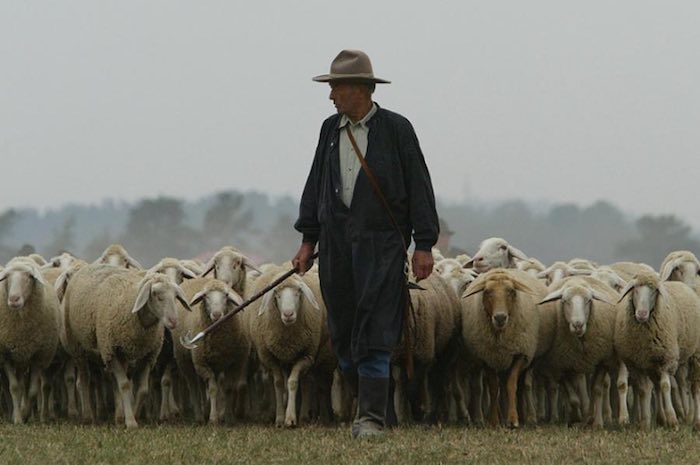
The Mark of a Good Shepherd
I believe that Jacob’s twenty years of service as a shepherd under his father-in-law was a character building time in his own life and revealed his heart as a good shepherd. The mark of a good shepherd is the condition of his flocks.
Sheep will directly react to how they are cared for. In the book A Shepherd Looks at Psalm 23, Phillip Keller explains the impact that a shepherd has on his flocks:
The strange thing about sheep is that because of their very make-up it is almost impossible for them to be made to lie down unless four requirements are met. Owing to their timidity, they refuse to lie down unless they are free of all fear. Because of the social behavior within a flock, sheep will not lie down unless they are free from friction with others of their kind. If tormented by flies or parasites, sheep will not lie down. Only when free of these pests can they relax. Lastly, sheep will not lie down as long as they feel in need of finding food. They must be free from hunger.
It is significant that to be at rest there must be a definite sense of freedom from fear, tension, aggravations, and hunger. The unique aspect of the picture is that it is only the sheepman himself who can provide release from these anxieties. It all depends upon the diligence of the owner whether or not his flock is free of disturbing influences. – Keller, W. Phillip. A Shepherd Looks at Psalm 23, Zondervan Pub. Grand Rapids, MI. 1970. p. 35
Sheep live best under a shepherd who is diligently seeking to remove all sources of fear from his flock. When a shepherd provides an environment that is free of all of the fears listed above, a flock of sheep will thrive and function at its highest level.
The years of service that Jacob worked as a shepherd reveal that he was a good shepherd. Laban’s flocks were small and insignificant before Jacob arrived but thrived under his care:
But Laban said to him, “If now it pleases you, stay with me; I have divined that the LORD has blessed me on your account.” He continued, “Name me your wages, and I will give it.” But he said to him, “You yourself know how I have served you and how your cattle have fared with me. For you had little before I came and it has increased to a multitude, and the LORD has blessed you wherever I turned. – Gen. 30:27-30
Outside of the blessing of God, Jacob proved himself to be a good shepherd and to remove all fear from the flocks under his care, resulting in tremendous increase.
The Good Shepherd
There are various shepherds mentioned in the Bible beginning with Abel (Gen. 4:2) and continuing throughout all of the Old Testament. In the New Testament, Yeshua proclaimed that He was also a shepherd: “I am the good shepherd; the good shepherd lays down His life for the sheep.” (John 10:11) As far as we know Yeshua was not a shepherd by profession, however, He used the analogy of a dedicated and diligent shepherd to explain how He was acting as a good shepherd by giving up His very own life for the sake of His flock.
Before Yeshua left this earth He had a heart to heart talk with one of His disciples. Peter had earlier told Yeshua that He would follow Yeshua anywhere and that he was willing to lay down his own life on His behalf. Yeshua warned Peter that he would deny Him three times and this happened before Yeshua was crucified (John 13:37-38). Peter must have carried a huge scar on his soul from this denial. He obviously repented and was forgiven by the Lord but it must have been humbling for Peter to continually proclaim his allegiance and faithfulness to his Messiah after such a devastating fall.
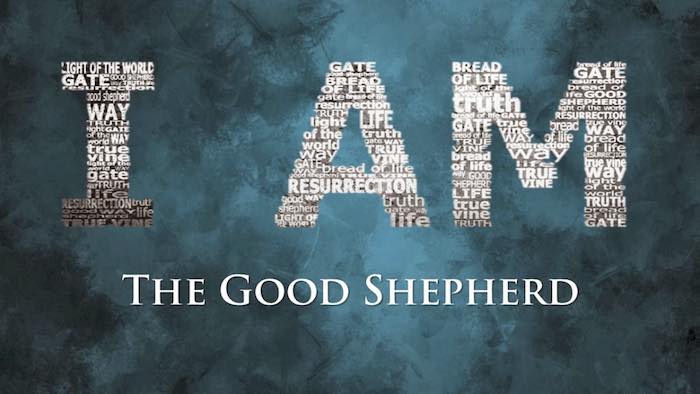
The Call of a Shepherd
Before Yeshua ascended to heaven, He appeared to His disciples by the Sea of Galilee. It was at this time that Yeshua had the following heart to heart dialogue with Peter:
So when they had finished breakfast, Yeshua said to Simon Peter, “Simon, son of John, do you love Me more than these?” He said to Him, “Yes, Lord; You know that I love You.” He said to him, “Tend My lambs.” He said to him again a second time, “Simon, son of John, do you love Me?” He said to Him, “Yes, Lord; You know that I love You.” He said to him, “Shepherd My sheep.” He said to him the third time, “Simon, son of John, do you love Me?” Peter was grieved because He said to him the third time, “Do you love Me?” And he said to Him, “Lord, You know all things; You know that I love You.” Yeshua said to him, “Tend My sheep. – John 21:15-17
Three times Yeshua asked Peter if he loved Him, three times Peter answered yes, and three times Yeshua instructed Peter to tend or shepherd His sheep.
Yeshua knew what it took to be a good shepherd as He had laid down His own life on behalf of His sheep. Yeshua knew Peter’s heart perfectly and knew that Peter did genuinely love Him, however, I believe Yeshua was helping Peter put his passion in the right place through this series of questions and His challenge to Peter to shepherd the sheep. True love would be proved through faithful and diligent shepherding. Peter had to learn how to put his fishing nets down and how to take care of sheep instead, in a spiritual sense.
Pastors of congregations are generally called shepherds because that is exactly what they are called to do, to spiritually shepherd their flock. Shepherding people by caring for their spiritual needs is a 24/7 calling which demands much from the shepherd. God’s pure love is manifested when we give ourselves on behalf of others. Spiritual shepherding is one manifestation of God’s love in action.
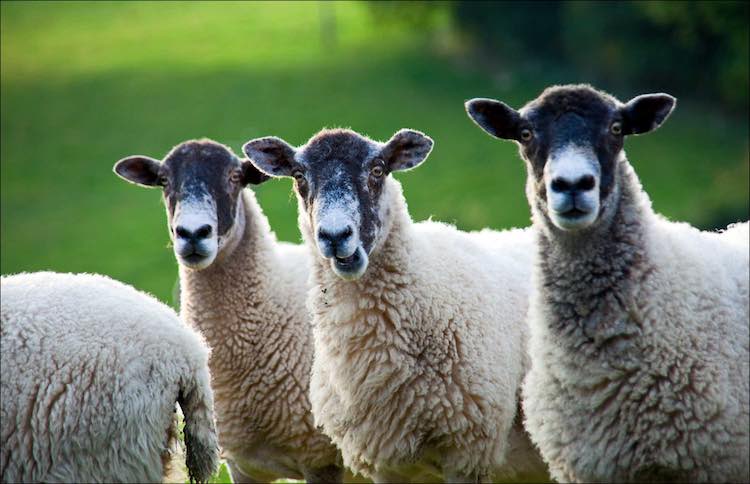
The Faithful Shepherd
I want to close this week’s commentary with a verse from the book of Psalms. We read these words in Psalm 37: “Trust in the LORD and do good; dwell in the land and cultivate faithfulness.” (Psalm 37:3) The first part of this verse is clear and translated well, however, the second part is hidden in translation. The second half of this verse in Hebrew reads “שכן ארץ ורעה אמונה” – “shechon eretz u’re’eh ehmunah,” and is best translated, “dwell in the land and shepherd faithfulness” or it could be translated “dwell in the land and faithfully shepherd.”
As I was studying and contemplating this verse from Psalm 37 I was reminded that our faith in God is not simply rhetoric and theology. If we say that we trust in the LORD, we are to do good and faithfully shepherd. As followers of God and disciples of Yeshua we are called to pour our lives into others for their benefit, growth, and well being. Who are the sheep that God has given you to shepherd? We are called to be good sheep and faithful shepherds.
Shabbat Shalom!
If you enjoyed reading this article, share it today with friends! We also invite you to sign up for our weekly Torah Portion commentary on the sidebar to the right.
Help keep our weekly commentaries free and available to all. Click here to donate today:
Torah Portion: Gen. 28:10 – Gen. 32:2
Haftara: Hoshea 12:13 – Hoshea 14:10
Return to Torah Portion Homepage
Copyright Jewels of Judaism. All rights reserved 2016

